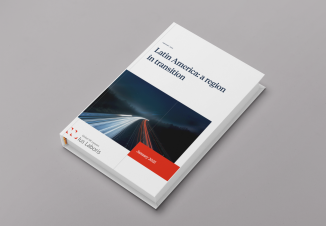
German holiday law has been subject to constant change in recent years resulting from important decisions by the European Court of Justice and the Federal Labor Court. In recent months, a new Supreme Court ruling has attracted significant attention to the fact that from now on, the entitlement to statutory minimum holiday only expires at the end of the calendar year if the employer informs the employee beforehand in concrete terms about his or her existing holiday entitlement and its expiry periods and asks the employee to take the holiday, and the employee does not take the holiday of his or her own free will (i.e. despite it being actual possible for him or her to do so). This follows from an interpretation of s7 (1) and (3) of the Federal Vacation Act (‘BUrlG’) in conformity with the Directive. Employers are strongly advised to keep abreast of the latest case law of the highest courts.
Experience has shown that new case law raises follow up questions and creates uncertainty with regard to practical implementation. It is therefore all the more pleasing when the lower courts of instance have the opportunity to give (provisional) clarity quickly. The Hamm Higher Regional Labour Court recently had to deal with the question of whether the employer’s duty to provide information on the expiry of holiday entitlements also applies to employees with long-term illnesses. The court has held that employers do not have a duty to do so
The initial case
In the legal dispute, the parties disputed the existence of the plaintiff’s vacation claims from 2017. Since 2017, the plaintiff had been continuously unable to work because of illness and could no longer claim 14 vacation days in 2017 as a result of her illness. With reference to the new case law of the Federal Labor Court, she wanted to have the court determine that the holiday entitlement from 2017 had not expired because the defendant (her employer) had failed to inform her in good time of the imminent expiration of her holiday entitlement.
Higher Regional Court: no obligation to inform employees with long-term illnesses
The Hamm Higher Regional Court confirmed the first instance decision of the Paderborn Labour Court rejecting the action in its decision of 24 July 2019 (Case No. 5 Sa 676/19). The court clarified that the principles established by the Federal Labour Court regarding the employer’s duty to instruct employees on the expiration of vacation entitlements should not apply to employees suffering from long-term illness.
The Higher Regional Court was unable to follow the plaintiff’s main argument that the employer also had to comply with its duty to inform her, as otherwise employees who were unable to work would be in an unfavourable position compared to employees who were able to work.
Rather, the Court held that individuals who are capable of work and those who are not should not be treated in a comparable way with regard to granting leave. If the employee continues to be unable to work, it is not possible for the employer to ensure that the sick employee takes paid annual leave, because the incapacitated employee cannot take it because of his or her incapacity to work. Requiring the employer to inform an employee about his or her holiday entitlement only makes sense if the employee is in the position to react to this information and can also actually take the holiday.
In addition, an employer could not give the required instruction correctly in the event of the existence of holiday entitlements of an employee who was incapacitated for work. An instruction to the effect that holiday claims expire on 31 December would simply be wrong in the case of a long-term employee, since the entitlement would only expire 15 months after the end of the calendar year in which the entitlement arose. The question of earlier expiration can only be clarified after the employee’s recovery of the employee. This had not yet happened in the case before the LAG Hamm.
Practical advice
The Higher Regional Court’s judgement is consistent and to be welcomed in its clarity. It is not necessary and would simply be wrong to inform employees with long-term illnesses that their leave will expire at the end of the year. This is because the employer’s obligation to inform should not be an end in itself, but only makes sense if the employee is in a position to react to it and can actually take the leave. This will not be the case where the employee has an ongoing inability to work. With continuous incapacity to work, the holiday entitlement expires after 15 months regardless of whether the employer has informed the employee. Only once the employee has recovered can the employer indicate to the employee that his or her holiday entitlement expires at the year end and/or on 31 March of the following year.
Ultimately, therefore, the ruling is in line with current case law. Since the plaintiff has appealed the judgment to the Federal Labour Court, it remains to be seen whether the Federal Labour Court will follow the Higher Regional Court’s reasoning.


